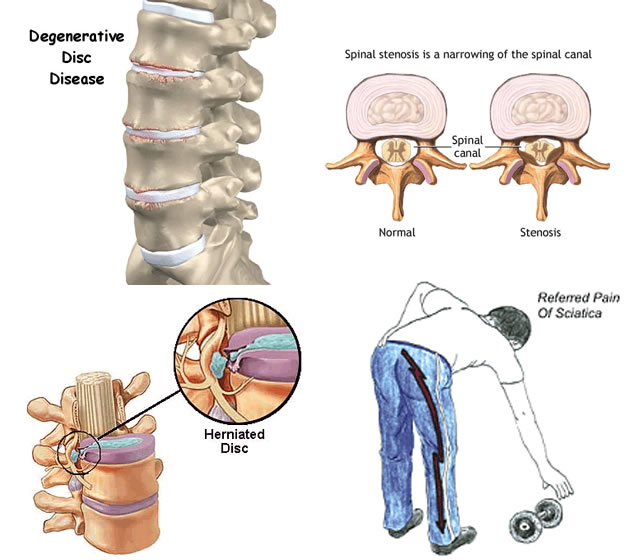 Low back pain may be caused by a variety of factors including injuries and aging. In order to better understand low back pain, it is essential to have some knowledge about the human anatomy. The human spinal cord is protected by bones known as vertebrae. These bones have soft discs in between; the primary function of these is to act as shock absorbers which protect the spinal cord and the vertebrae.
Low back pain may be caused by a variety of factors including injuries and aging. In order to better understand low back pain, it is essential to have some knowledge about the human anatomy. The human spinal cord is protected by bones known as vertebrae. These bones have soft discs in between; the primary function of these is to act as shock absorbers which protect the spinal cord and the vertebrae.
Now, many of the incidences of lower back pain come as a result of problems related to these soft discs, including degeneration due to wear and tear and herniation or bulging of these discs.
One effective treatment that addresses the root of the problem is called spinal decompression therapy, a non-invasive procedure. How effective is this treatment? According to many patients who have undergone decompression, they immediately saw improvements in their conditions in a matter of two weeks.
Decompression has been deemed to be effective for patients who are suffering from a variety of back, neck and leg pain including sciatica, lumbar disc herniation, cervical disc herniation, facet syndrome, ruptured discs, degenerative discs, degenerative disc disease and spinal stenosis. Although the treatment is no magic cure for all patients and conditions, research has shown it to be highly effective and safe and costs significantly less as compared to other available treatments.
In general, decompression treatment does not have any side effects. There are, however, some patients who report experiencing mild muscle spasms for a short duration of time.
Decompression treatment takes six weeks. During the initial two weeks, a patient undergoes treatment between 30 to 45 minutes daily. In the following two weeks, the patient will undergo treatment thrice a week. On the last two weeks of treatment, the patient needs to visit the clinic twice a week.
If you have tried other treatments to no avail, or if you do not want to go under the knife, it is worthwhile to consult your doctor and inquire about decompression.
It should be pointed out, however, that decompression is not for everyone. Suitable candidates for the treatment include those who suffer from herniated or lumbar discs for over a month, patients who have undergone a failed back surgery and patients who experience persistent pain due to degenerated discs after a month of therapy.
The treatment is not recommended for those who are pregnant, patients with appliances like pedicle screws, metatastic cancer patients, patients with severed osteoporosis, patients with Pars defect, and patients with disc space infections.














